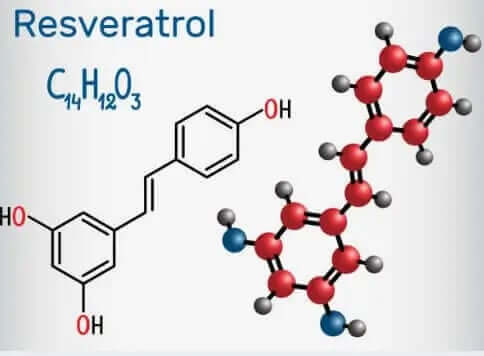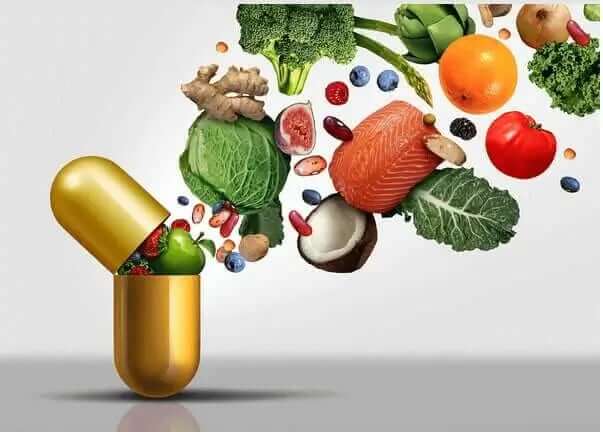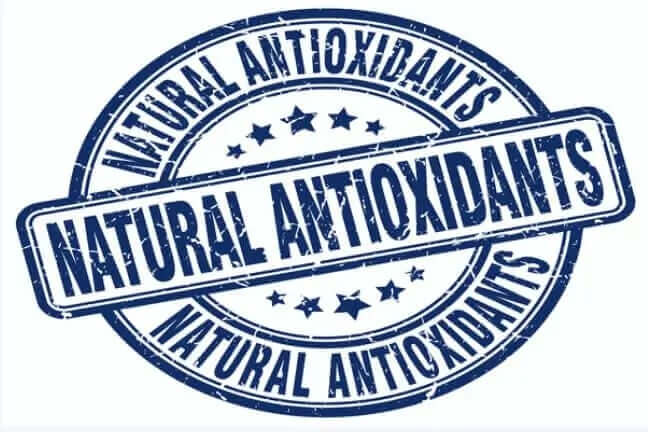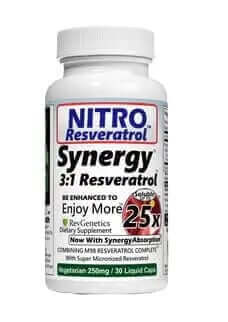Resveratrol Benefits: The Complete Guide to This Powerful Antioxidant
Discover the remarkable resveratrol benefits that have captured the attention of researchers worldwide. This powerful plant compound, naturally found in red grapes, blueberries, and pomegranates, offers promising health advantages ranging from cardiovascular support to potential cancer prevention. Whether you're seeking to boost your immune system, improve metabolic function, or simply enhance your overall wellness, understanding how resveratrol works can open doors to better health outcomes.
What Is Resveratrol and Why Does It Matter?
Resveratrol represents nature's sophisticated defense system. Plants produce this polyphenolic compound as a protective response to environmental stressors, creating a substance that remarkably benefits human health. This natural antioxidant has become a cornerstone of nutritional science, particularly celebrated for its presence in red wine and its association with the health-promoting Mediterranean diet.
The journey of resveratrol from plant defense mechanism to human health supplement showcases the incredible symbiosis between nature and our wellbeing. When you consume foods rich in resveratrol or take quality supplements, you're harnessing millions of years of plant evolution to support your body's vital systems.
Top Resveratrol Benefits for Your Health
1. Powerful Cardiovascular Protection
One of the most celebrated resveratrol benefits involves heart health. This compound works through multiple pathways to support cardiovascular function:
- Blood vessel protection: Resveratrol helps maintain flexible, healthy arteries by protecting the endothelium (inner lining of blood vessels)
- Cholesterol management: Studies suggest resveratrol may help maintain healthy cholesterol levels, particularly by preventing LDL oxidation
- Blood pressure support: The compound's ability to promote nitric oxide production helps blood vessels relax, supporting healthy blood pressure
- Anti-inflammatory effects: By reducing inflammation markers, resveratrol helps protect against cardiovascular disease development

2. Enhanced Brain Function and Neuroprotection
The brain-protective qualities of resveratrol offer hope for maintaining cognitive function throughout life. Research indicates that resveratrol crosses the blood-brain barrier, where it provides direct neuroprotective effects. These benefits include protecting brain cells from oxidative stress, potentially reducing the risk of neurodegenerative conditions, and supporting memory and learning functions.
Scientists have observed that resveratrol activates specific proteins called sirtuins, which play crucial roles in brain health and longevity. This activation may help protect against age-related cognitive decline and support mental clarity well into your golden years.
3. Metabolic Support and Weight Management
Among the exciting resveratrol benefits is its potential to enhance metabolic function. Research shows that resveratrol may help:
- Increase insulin sensitivity, supporting healthy blood sugar levels
- Boost mitochondrial function, enhancing cellular energy production
- Support healthy fat metabolism, potentially aiding weight management efforts
- Activate AMPK, a key enzyme involved in cellular energy balance
These metabolic effects make resveratrol particularly valuable for those looking to optimize their body composition and energy levels naturally.
4. Immune System Enhancement
Your immune system serves as your body's primary defense network, and resveratrol acts as a powerful ally in this protection. The compound modulates immune responses, helping your body maintain the delicate balance between defending against pathogens and avoiding excessive inflammation.
Research demonstrates that resveratrol supports both innate and adaptive immunity, enhancing your body's ability to recognize and respond to threats while maintaining healthy inflammatory responses. This balanced approach makes resveratrol particularly beneficial during seasonal challenges or periods of increased stress.
5. Anti-Aging and Longevity Support
Perhaps the most intriguing aspect of resveratrol benefits relates to its potential anti-aging properties. The compound activates sirtuins, often called "longevity genes," which regulate cellular health and lifespan across various species. While human longevity studies continue, the existing research paints an optimistic picture of resveratrol's role in healthy aging.

Natural Sources of Resveratrol
Understanding where to find resveratrol naturally empowers you to make informed dietary choices. The richest sources include:
| Food Source | Resveratrol Content | Additional Benefits |
|---|---|---|
| Red grapes (skin) | High | Also contains quercetin and anthocyanins |
| Red wine | Moderate to High | Fermentation may enhance bioavailability |
| Blueberries | Moderate | Rich in additional antioxidants |
| Pomegranates | Moderate | Contains punicalagins for extra protection |
| Dark chocolate | Low to Moderate | Provides flavonoids and mood support |
| Peanuts | Low | Good protein source |
How Resveratrol Works in Your Body
The mechanisms behind resveratrol benefits involve sophisticated cellular processes. When you consume resveratrol, it interacts with multiple molecular targets throughout your body. The compound activates SIRT1, a protein that regulates cellular health and metabolism. It also influences the AMPK pathway, often called the body's "metabolic master switch."
Additionally, resveratrol modulates inflammatory pathways by inhibiting NF-κB, a key regulator of inflammation. This multi-targeted approach explains why resveratrol offers such diverse health benefits, from cardiovascular protection to potential cancer prevention.
Resveratrol and Cancer Prevention
The National Institutes of Health has documented compelling evidence regarding resveratrol's potential in cancer prevention. The compound appears to work through multiple mechanisms:
- Apoptosis induction: Encouraging damaged cells to self-destruct before becoming cancerous
- Angiogenesis inhibition: Preventing tumors from developing new blood vessels
- Cell cycle regulation: Helping maintain normal cell division patterns
- Metastasis prevention: Potentially reducing cancer spread
While human clinical trials continue, the laboratory evidence provides reason for optimism about resveratrol's role in comprehensive cancer prevention strategies.
Athletic Performance and Recovery
Athletes and fitness enthusiasts are discovering the performance-enhancing resveratrol benefits. Sports nutritionists increasingly recommend resveratrol supplementation for:
- Faster recovery from intense training sessions
- Reduced exercise-induced oxidative stress
- Enhanced endurance through improved mitochondrial function
- Better muscle adaptation to training stimuli
- Natural pain relief and inflammation reduction
These effects make resveratrol a valuable addition to any serious athlete's nutrition protocol, supporting both performance and long-term health.

Optimizing Resveratrol Absorption
To maximize the resveratrol benefits you experience, consider these absorption-enhancing strategies:
- Take with healthy fats: Resveratrol is fat-soluble, so consuming it with foods like avocado or nuts improves absorption
- Consider timing: Some research suggests taking resveratrol in the morning may align better with circadian rhythms
- Combine with piperine: Black pepper extract can significantly enhance resveratrol bioavailability
- Choose quality supplements: Look for trans-resveratrol, the most bioactive form
- Maintain consistency: Regular intake allows for steady blood levels and optimal benefits
Safety Considerations and Dosage Guidelines
While resveratrol demonstrates an excellent safety profile, understanding proper usage ensures you receive maximum benefits. Most studies showing positive effects use doses ranging from 150-500mg daily. However, individual needs vary based on health goals, body weight, and overall health status.
Resveratrol may interact with certain medications, particularly blood thinners and NSAIDs. Always consult with healthcare providers before starting any new supplement regimen, especially if you have existing health conditions or take prescription medications.
The Future of Resveratrol Research
The scientific community continues uncovering new resveratrol benefits through ongoing research. Current investigations explore its potential in:
- Epigenetic modulation and gene expression
- Gut microbiome optimization
- Stem cell protection and regeneration
- Advanced anti-aging protocols
- Combination therapies with other natural compounds
As research progresses, we anticipate discovering even more ways this remarkable compound can support human health and longevity.
Making Resveratrol Part of Your Wellness Journey
Incorporating resveratrol into your daily routine represents an investment in your long-term health. Whether through dietary sources or quality supplements, this powerful antioxidant offers a natural approach to addressing multiple health concerns simultaneously.
Start by increasing your consumption of resveratrol-rich foods, particularly red grapes and berries. Consider supplementation if your dietary intake falls short or if you're targeting specific health goals. Remember that resveratrol works best as part of a comprehensive healthy lifestyle including balanced nutrition, regular exercise, stress management, and adequate sleep.
Frequently Asked Questions About Resveratrol Benefits
What are the primary resveratrol benefits for overall health?
The primary resveratrol benefits include powerful antioxidant protection, cardiovascular support, enhanced brain function, improved metabolic health, and potential anti-aging effects. This versatile compound supports multiple body systems simultaneously, making it valuable for comprehensive wellness. Regular consumption through diet or supplementation may help protect against chronic diseases, support healthy aging, and enhance overall vitality.
How much resveratrol should I take daily?
Most research studies showing positive health outcomes use resveratrol doses between 150-500mg daily. However, optimal dosage depends on individual factors including age, health status, and specific wellness goals. Starting with a lower dose and gradually increasing allows you to assess your body's response. Always choose high-quality supplements containing trans-resveratrol, the most bioactive form, and consult healthcare providers for personalized recommendations.
Can I get enough resveratrol from food alone?
While foods like red grapes, blueberries, and pomegranates contain resveratrol, achieving therapeutic doses through diet alone can be challenging. For example, you would need to consume large quantities of red wine or grape juice daily to match supplement doses used in studies. A balanced approach combining resveratrol-rich foods with quality supplementation often provides the most practical solution for experiencing significant health benefits.
Are there any side effects of taking resveratrol?
Resveratrol generally demonstrates excellent safety when taken at recommended doses. Some individuals may experience mild digestive discomfort when first starting supplementation, which typically resolves with continued use. Because resveratrol has mild blood-thinning properties, those taking anticoagulant medications should consult healthcare providers. Most people tolerate resveratrol well and experience only positive effects when using quality products at appropriate doses.
How long does it take to see resveratrol benefits?
The timeline for experiencing resveratrol benefits varies depending on the specific health outcome. Some people report increased energy and improved well-being within days to weeks. Cardiovascular and metabolic benefits typically become measurable after 8-12 weeks of consistent use. Long-term benefits like cellular protection and anti-aging effects accumulate over months and years. Consistency remains key to experiencing the full spectrum of resveratrol's health-promoting properties.
Can resveratrol help with weight loss?
Research suggests resveratrol may support healthy weight management through multiple mechanisms. It enhances metabolic function, improves insulin sensitivity, and may help activate fat-burning pathways. Studies show resveratrol can help counteract some negative effects of high-calorie diets. While not a magic weight loss solution, resveratrol works synergistically with healthy diet and exercise habits to optimize body composition and metabolic health.
Is resveratrol safe for long-term use?
Current research indicates resveratrol is safe for long-term use when taken at recommended doses. Many populations consuming resveratrol-rich diets, such as those following Mediterranean eating patterns, demonstrate excellent long-term health outcomes. Clinical studies lasting months to years show no significant adverse effects. As with any supplement, periodic evaluation of your health status and needs ensures optimal benefits while maintaining safety.
What makes resveratrol different from other antioxidants?
Resveratrol stands apart from other antioxidants through its unique ability to activate sirtuins and influence gene expression. Unlike simple antioxidants that only neutralize free radicals, resveratrol modulates multiple cellular pathways including AMPK activation, NF-κB inhibition, and mitochondrial biogenesis. This multi-targeted approach provides benefits beyond basic antioxidant protection, potentially influencing aging processes and cellular metabolism at fundamental levels.
Can children take resveratrol supplements?
While resveratrol naturally occurs in foods children commonly eat like grapes and berries, supplementation in children requires careful consideration. Most research focuses on adult populations, with limited pediatric studies available. Children can safely obtain resveratrol through a balanced diet rich in colorful fruits. For supplementation, consult pediatric healthcare providers who can assess individual needs and provide age-appropriate guidance based on current evidence.
How does resveratrol support brain health specifically?
Resveratrol benefits brain health through multiple neuroprotective mechanisms. It crosses the blood-brain barrier to provide direct antioxidant protection to neurons, reduces neuroinflammation, and promotes healthy blood flow to brain tissue. Research shows resveratrol may help clear beta-amyloid proteins associated with cognitive decline, support the growth of new brain cells, and enhance communication between neurons. These combined effects offer promise for maintaining cognitive function and protecting against age-related brain changes.
Conclusion: Embracing the Power of Resveratrol
The extensive research on resveratrol benefits reveals a natural compound with remarkable potential to enhance human health across multiple dimensions. From protecting your cardiovascular system to potentially extending healthy lifespan, resveratrol represents one of nature's most valuable gifts to human wellness.
As you consider incorporating resveratrol into your health routine, remember that this powerful antioxidant works best as part of a comprehensive approach to wellness. Combined with healthy lifestyle choices, resveratrol can help you achieve optimal health, vitality, and longevity. The future of preventive health care increasingly recognizes the value of natural compounds like resveratrol, offering hope and practical solutions for those seeking to maximize their health potential.
Whether you choose to increase your consumption of resveratrol-rich foods or add a quality supplement to your daily routine, you're taking a proactive step toward better health. The growing body of research continues to validate what traditional wisdom has long suggested: nature provides powerful tools for maintaining and enhancing our health. Resveratrol stands as a shining example of this principle, offering scientifically-backed benefits that can transform your approach to wellness.
```







